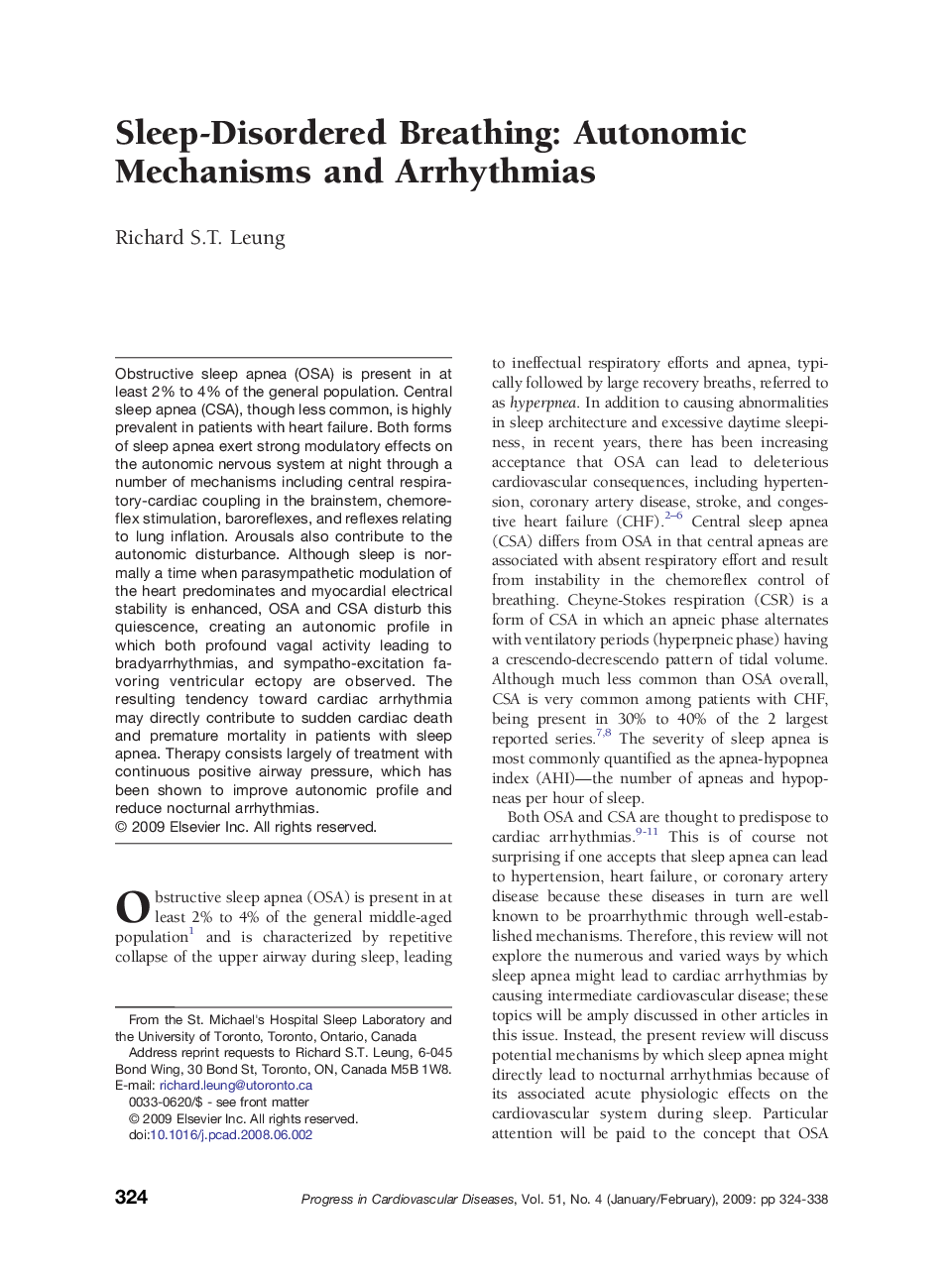| Article ID | Journal | Published Year | Pages | File Type |
|---|---|---|---|---|
| 3006995 | Progress in Cardiovascular Diseases | 2009 | 15 Pages |
Obstructive sleep apnea (OSA) is present in at least 2% to 4% of the general population. Central sleep apnea (CSA), though less common, is highly prevalent in patients with heart failure. Both forms of sleep apnea exert strong modulatory effects on the autonomic nervous system at night through a number of mechanisms including central respiratory-cardiac coupling in the brainstem, chemoreflex stimulation, baroreflexes, and reflexes relating to lung inflation. Arousals also contribute to the autonomic disturbance. Although sleep is normally a time when parasympathetic modulation of the heart predominates and myocardial electrical stability is enhanced, OSA and CSA disturb this quiescence, creating an autonomic profile in which both profound vagal activity leading to bradyarrhythmias, and sympatho-excitation favoring ventricular ectopy are observed. The resulting tendency toward cardiac arrhythmia may directly contribute to sudden cardiac death and premature mortality in patients with sleep apnea. Therapy consists largely of treatment with continuous positive airway pressure, which has been shown to improve autonomic profile and reduce nocturnal arrhythmias.
